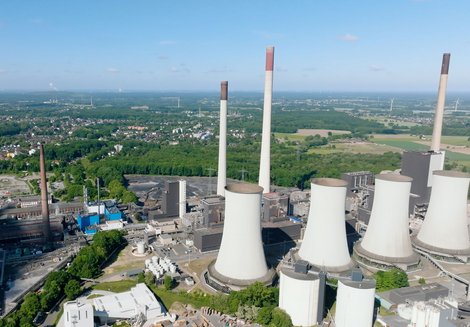Technologies for the low-carbon production of hydrogen are crucial for the successful expansion of the hydrogen economy. However, until Germany has sufficient production capacity to meet the demand for hydrogen, especially in energy-intensive industries, hydrogen will have to be imported in the form of ammonia. Ammonia cracking is considered a key technology for this process.
The Düsseldorf-based energy company Uniper is building one of the world's largest cracking units in collaboration with the engineering firm thyssenkrupp Uhde. Ammonia has a high energy density, making it particularly suitable for transporting hydrogen. It can be converted into ammonia directly at the production site and shipped worldwide. At the relevant terminals, the ammonia is broken down again into nitrogen and hydrogen using a cracking process. These gases are then transported via pipelines.
The demonstration plant at the Uniper power plant in Gelsenkirchen-Scholven marks an important milestone in the industrial conversion of ammonia into hydrogen. Starting in 2026, the plant will process up to 28 tons of ammonia daily, producing four tons of hydrogen per day. For comparison, the world's largest ammonia cracker, located in the UK, currently produces approximately 400 kilograms of hydrogen daily. Uniper plans to use the data obtained during operation to inform the construction of a commercial ammonia import terminal in Wilhelmshaven. Ammonia from around the globe will be imported there and converted back into hydrogen.
NRW Minister for Economics and Climate Protection Mona Neubaur emphasizes the importance of the project: "With ammonia cracking technology, we can source green energy from many regions around the world. This will strengthen the resilience of our business location and demonstrate how sustainability and security of supply can coexist."


